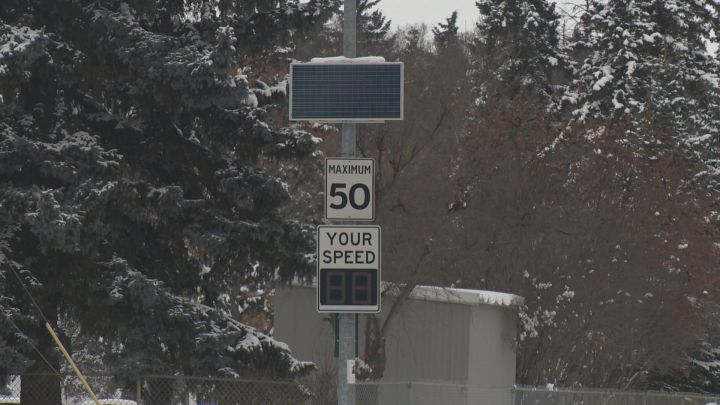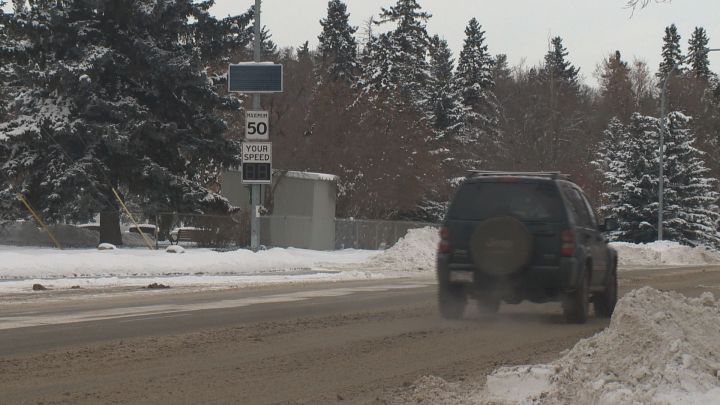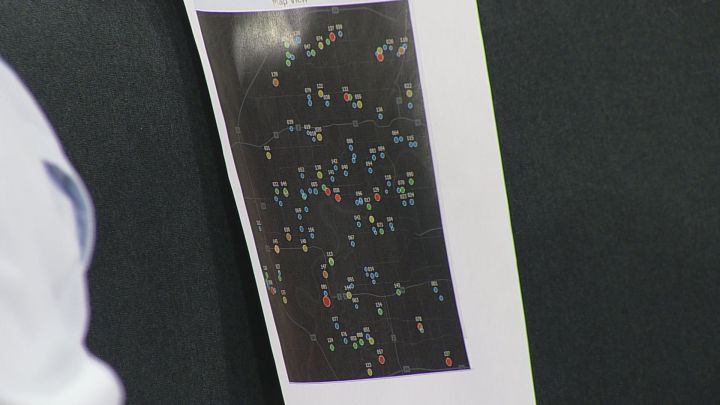Edmonton’s new “driver feedback” signs are popping up around the city. Nearly 150 of the digital signs have been installed since 2016 in order to alert drivers as to how fast they are travelling.

And the City of Edmonton says the signs are working.
“The driver sees the sign, they get a speed and it will record the lowest speed at the sign when they pass it,” said Dennis Tetreault, supervisor of speed management and traffic safety with the city. “So we can see that there has been an improvement in driver behaviour.
“It’s radar-based. It records the speed of the vehicles when they enter the beam and then it tracks them as they go through.”
Edmonton has 148 of the signs. In November, seven signs were installed along Whitemud Drive.
“The Whitemud has been historically prone to a lot of collisions. We place the signs in areas that have the highest likelihood of success in getting drivers to slow down and reduce speed-related collisions,” Tetreault said.

Get daily National news
READ MORE: 30 km/h speed limit signs starting to go up around Edmonton playgrounds
When a driver is going 10 kilometres or more above the speed limit, the driver feedback signs tell drivers to slow down, instead of showing their actual speed.
The city says it doesn’t want to encourage speeders to race the sign and see how fast they can go.
Speeding past a driver feedback sign won’t result in an immediate photo-radar ticket, but the data collected is used to determine where the city is assigning traffic enforcement.
Tetreault’s department gets a weekly report detailing compliance.
“It provides hourly data so that we know if we are going to tell the police, ‘This is an area you need to spend some time with,'” Tetreault said.
“You need to go between these particular hours because it will tell you when is the best time to be out there if people are speeding.”
READ MORE: Driver clocked at 52 km/h over limit on icy Edmonton road
The city is planning to install another 130 signs over the next year-and-a-half. Each sign costs around $13,000.







Comments
Want to discuss? Please read our Commenting Policy first.